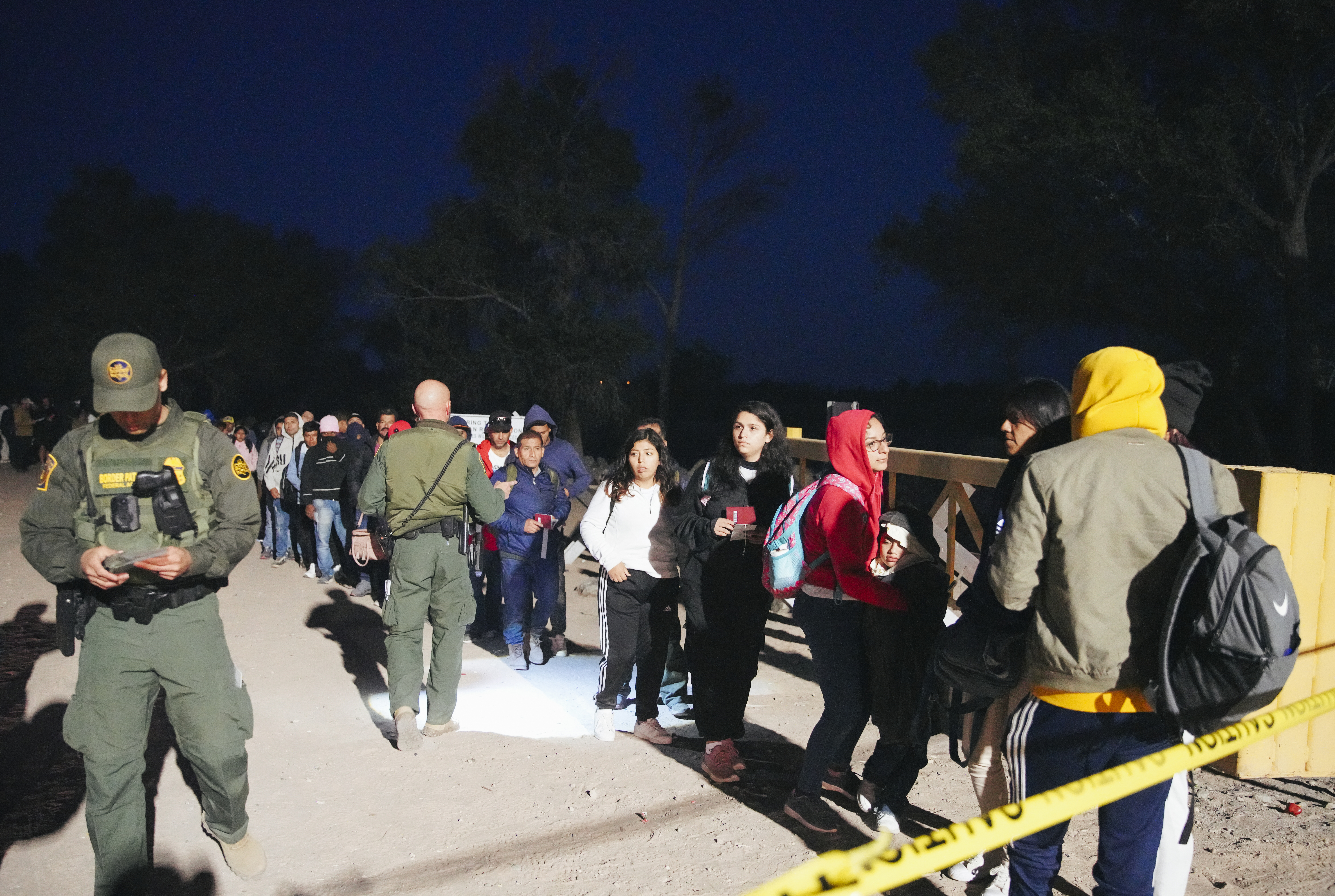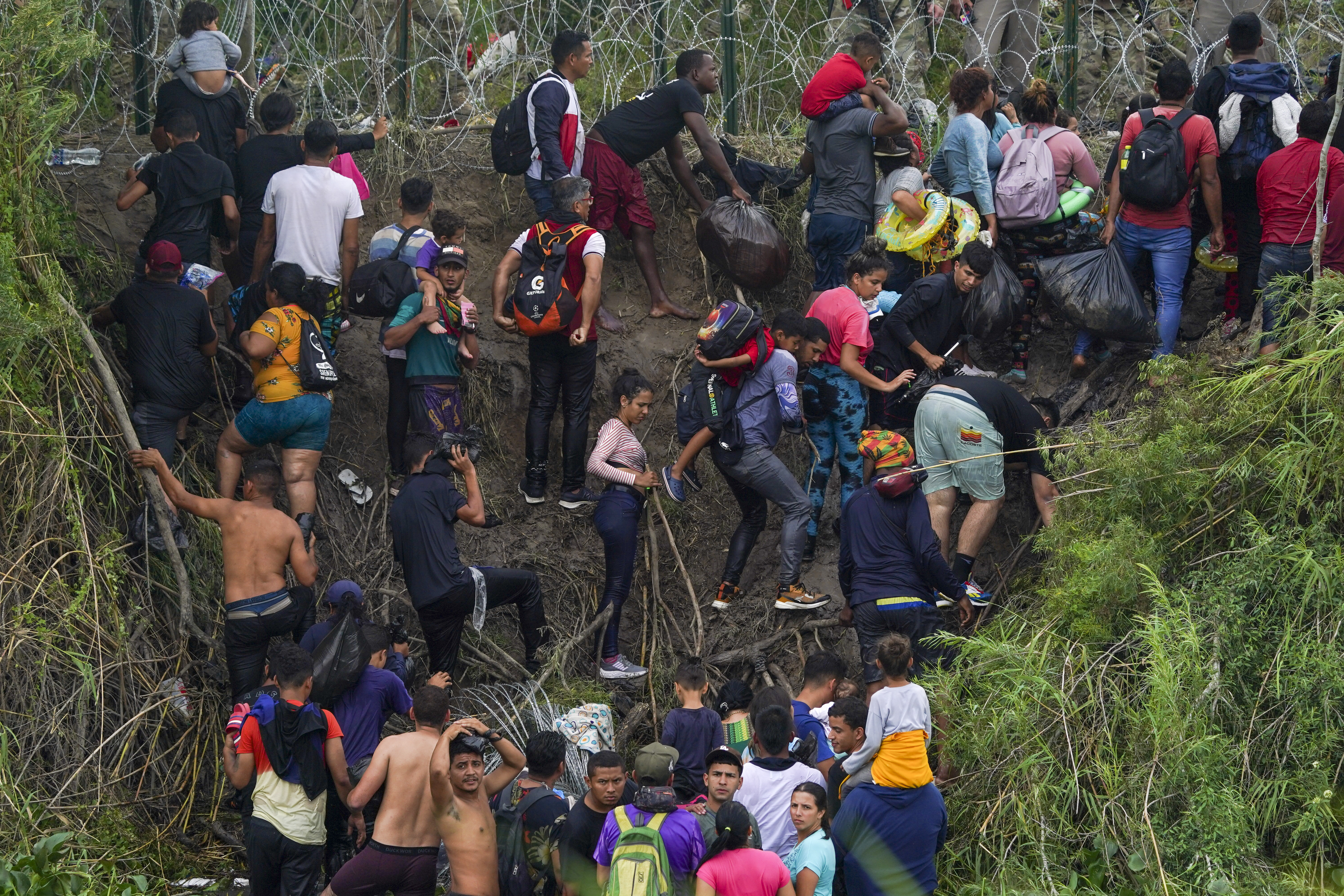The pending expiration of Title 42 brought crowds of migrants to the U.S.-Mexico border hoping to apply for asylum. It remains to be seen how thin resources in San Diego will be stretched, if at all, once migrants are processed and released into the U.S. now that the pandemic-era policy has officially expired.
Using history as a guide, San Diego County mayors are expecting different impacts.
El Cajon Mayor Bill Wells told NBC 7 that Customs and Border Protection told his office to expect drop-offs at transit stations in his city before Title 42's official expiration Thursday night.
Get San Diego local news, weather forecasts, sports and lifestyle stories to your inbox. Sign up for NBC San Diego newsletters.
“We have to take anybody in and we've already got a homeless crisis, so we're worried about becoming a beacon. So we're going to have to take it as it comes. But I could tell you one thing, we are compassionate. We know that the people that are coming across did not make this policy,” said Wells.
In December, the El Cajon Transit Center on Marshall Avenue was one of three hubs countywide that received more than 200 migrants combined. Wells said his city has a $68M surplus that they can tap, and said his police force is fully staffed and could work overtime if needed.
Related Stories
“The one thing I would tell the people is that whatever we spend, we'll be asking the federal government to reimburse us,” Wells said.
Meanwhile, Chula Vista Mayor John McCann didn’t seem too worried.
“We know our police are ready for it. Every time we’ve seen a surge in the past, ironically, Chula Vista has really not been affected,” McCann said.
Scenes From the US-Mexico Border as Title 42 Ends
And in San Diego, Mayor Todd Gloria said there are shelter beds for migrants, if needed, but didn’t expect many to stay as history has shown. Last winter, CBP officials said that anybody released into the community had strict reporting requirements in place, as part of the immigration process. Non-profits like Jewish Family Services and others that make up the San Diego Rapid Response Network helped migrants contact sponsors, families and other resources.
This time, Gloria said one major factor in the city and county’s response will be how quickly the federal government can keep up with funding.
“Obviously, we don’t know what the future will hold. Obviously, this is multiple years of pent-up demand for crossing in asylum status. But I can tell you, in speaking with our service providers here locally, I know we have the very best in this country. Given the proper resources, I believe they will be able to handle this particular challenge the way that they have done for decades and decades,” said Gloria.
NBC 7 went to several different transit stops Thursday, including trolley platforms and bus stations, but did not see any migrant drop-offs. It also appeared to be business as usual at the San Ysidro, El Cajon and East Village transit centers Thursday.
An MTS spokesperson said it's been in contact with CBP, but has not been notified about any drop-offs. The spokesperson also said MTS bus and trolley operators are aware of the situation and are prepared in case it escalates.
NBC 7's news coverage helicopter, SkyRanger 7, did spot buses taking migrants from the border to various facilities, operated by Catholic Charities of San Diego and Jewish Family Services, set up to provide short-term care and shelter for migrants released in the U.S.



